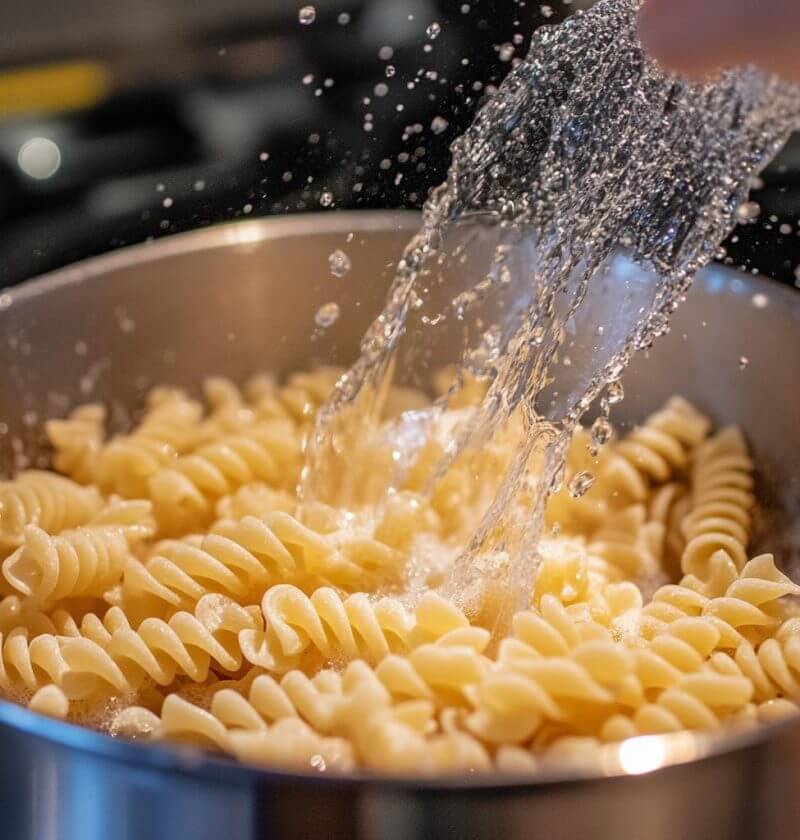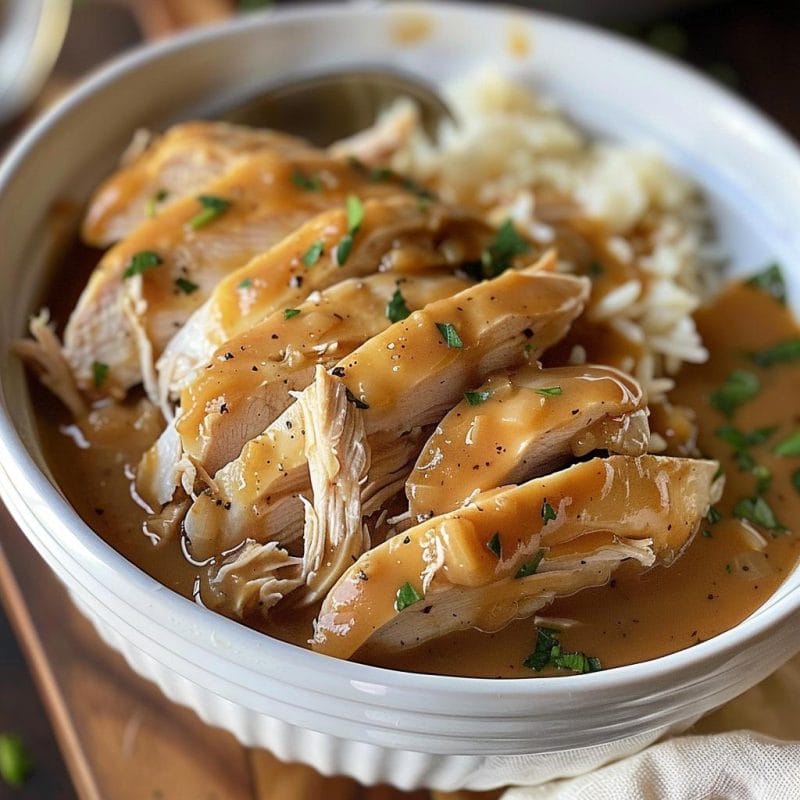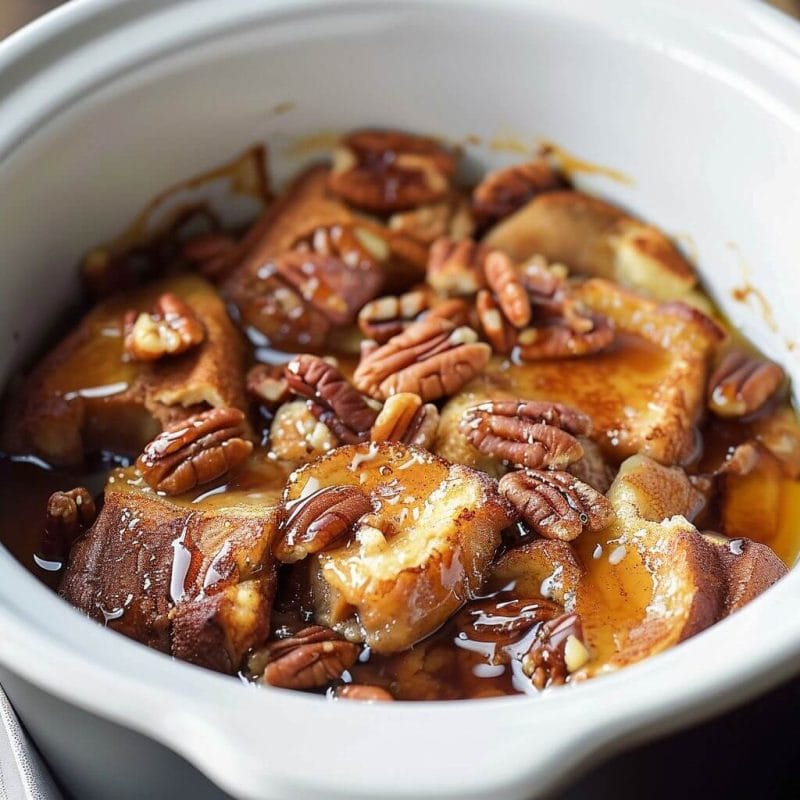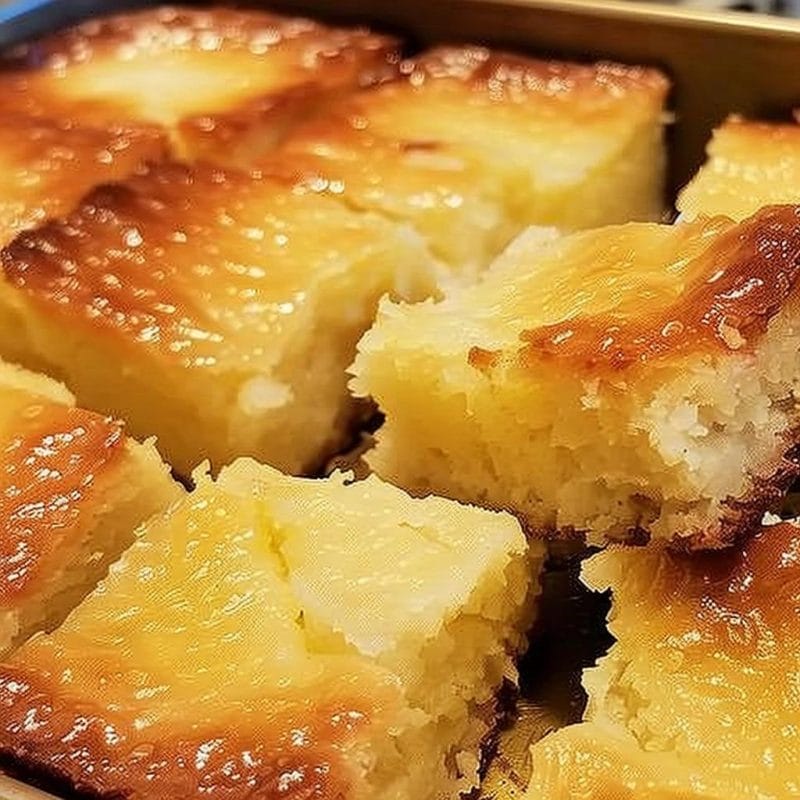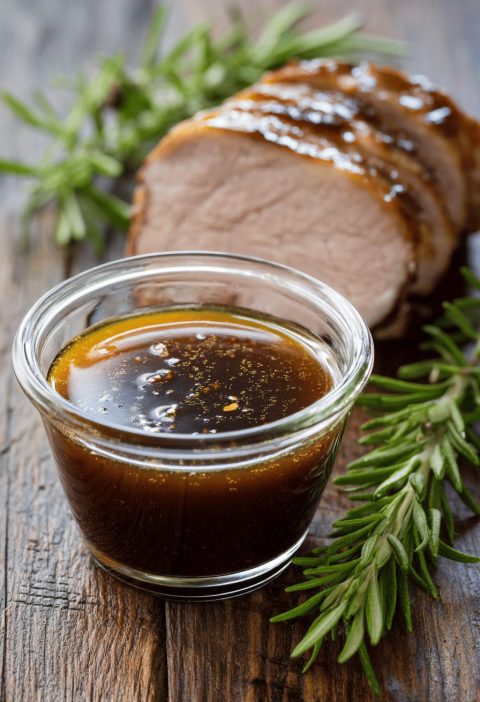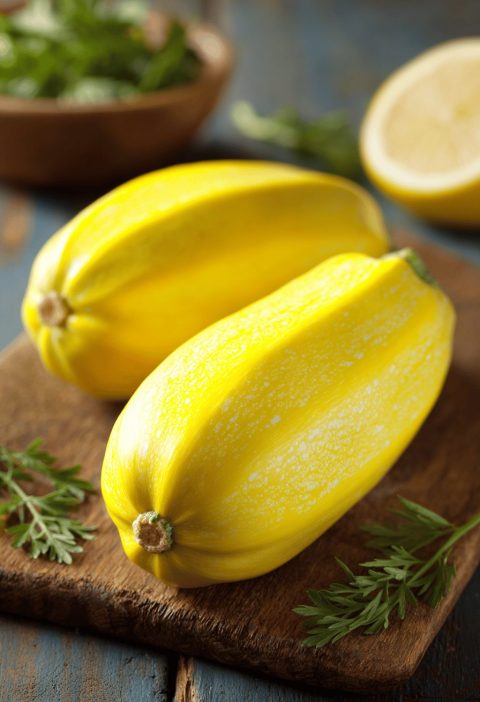Would you like to save this?
Pasta is a timeless staple in many kitchens, often cooked with care to achieve the perfect texture. However, while making spaghetti with my uncle, I noticed something that left me puzzled—he rinsed the pasta under cold water after draining it. As someone familiar with traditional pasta techniques, this raised a red flag for me. I’d always learned that rinsing pasta washes away the very starches that help sauces cling to the noodles. So why would someone rinse it? Is there a method to this madness?
In this article, we’ll explore why some people choose to rinse their pasta, uncover the science behind it, and when this technique actually makes sense. By the end, you’ll know exactly when rinsing pasta is a smart move—and when it’s a pasta no-no.
The Classic Way to Cook Pasta
Traditionally, cooking pasta is a straightforward process. You boil it in well-salted water, cook it to ‘al dente’ (meaning firm to the bite), and drain it before mixing it immediately with sauce. This method allows the starch released from the pasta to act as a natural binder, helping the sauce adhere better to each strand. It’s the way Italians have been doing it for generations, and it works like a charm.
So, when I saw my uncle rinsing the pasta, I couldn’t help but wonder why he’d take this extra step that seemed to go against everything I’d learned about keeping that precious starch intact.
Why Would You Rinse Pasta?
To understand why someone might rinse pasta, let’s first break down what happens when you do. When pasta is rinsed under cold water, a few key things occur:
- Halts the Cooking Process
Rinsing the pasta immediately stops the cooking process by cooling it down. This is useful if you’ve accidentally overcooked your pasta or if you want to prevent it from continuing to soften in the residual heat after draining. - Removes Surface Starch
Washing pasta under cold water removes surface starch. While starch is essential for helping sauce stick to pasta in hot dishes, it can cause problems if you’re preparing dishes where you don’t want stickiness, such as pasta salads. - Prevents Clumping
For certain dishes, especially ones served cold or made in advance, rinsing the pasta prevents it from clumping together. If pasta is left to sit in a pile, the starch can cause the noodles to stick and form a tangled mess, which isn’t ideal in salads or chilled dishes.
Now that we know what rinsing does, let’s explore when it makes sense to do it.
When Should You Rinse Pasta?
While rinsing is generally discouraged for hot pasta dishes, there are times when it’s beneficial. Here are the main scenarios where rinsing is recommended:
1. For Pasta Salads
When making cold dishes like pasta salads, rinsing is often a good idea. Since you won’t be serving the pasta hot, you don’t need the starch to help the sauce stick. Instead, rinsing cools the pasta quickly and prevents it from clumping together. This ensures your salad remains light and evenly mixed, without sticky noodles.
2. When Prepping Pasta in Advance
If you’re cooking pasta ahead of time to use later, rinsing can be helpful. It stops the cooking process, ensuring the pasta doesn’t become too soft. It also prevents the noodles from sticking together while they’re being stored. Just toss the cooled, rinsed pasta with a little olive oil to keep it from clumping, and refrigerate it until you’re ready to use.
3. For Stir-Fry or Noodle-Based Dishes
In Asian-inspired noodle dishes, such as stir-fries, rinsing the noodles can be useful, especially if they need to be stirred or tossed with a sauce. Removing the starch makes it easier to stir the noodles without them sticking together, resulting in a better texture for these types of dishes.
When You Shouldn’t Rinse Pasta
In most hot pasta dishes, rinsing is something to avoid. Here’s why:
1. You Want the Sauce to Stick
In traditional Italian cooking, starch is your friend. It’s the secret ingredient that helps the sauce cling to the pasta, creating a flavorful, cohesive dish. When you rinse pasta, you wash away that starch, which can make the sauce slide right off the noodles. This results in a less flavorful dish where the sauce and pasta feel disconnected.
2. You’re Making a Hot Dish
For hot dishes like spaghetti with marinara, Alfredo, or Bolognese, rinsing is a bad idea. The whole point of cooking pasta and then tossing it in the sauce is to let the noodles absorb and meld with the flavors. Rinsing cools the pasta down and makes it harder for the sauce to be absorbed, which means your pasta won’t taste as good as it could.
3. Using Pasta Water for the Sauce
Rinsing also eliminates the chance to use one of pasta’s most powerful allies: pasta water. This starchy water is often referred to as “liquid gold” because it helps emulsify and thicken sauces, giving them a silky, cohesive texture. If you rinse your pasta, you lose the opportunity to incorporate this valuable ingredient into your sauce.
Myths About Rinsing Pasta
Rinsing pasta is often misunderstood, with several myths floating around. Let’s debunk a few of the most common misconceptions:
- Myth 1: Rinsing Pasta Removes Carbohydrates
Some people believe that rinsing pasta makes it healthier by washing away carbs. This isn’t true. While rinsing does remove surface starch, the carbohydrates are intrinsic to the pasta itself and won’t be reduced by rinsing. - Myth 2: Rinsing Revives Overcooked Pasta
Rinsing overcooked pasta won’t magically bring it back to its ideal texture. While it may stop the cooking process, the pasta’s already lost its firmness, and rinsing can’t reverse that. - Myth 3: Rinsing Is Always Necessary
Some home cooks believe rinsing pasta is a necessary final step for all pasta dishes, but this isn’t the case. For most hot dishes, rinsing can actually hinder the quality of your meal.
Expert Opinions on Rinsing Pasta
Culinary experts generally agree that rinsing pasta is not ideal for hot dishes. Instead, they recommend using starchy pasta water to adjust the sauce’s consistency and help the sauce cling to the noodles. This technique enhances the flavor and texture of the dish.
That said, most chefs agree that rinsing has its place in certain scenarios, like pasta salads or cold noodle dishes. The trick is knowing when to rinse and when to avoid it.
Conclusion: Customize Your Pasta Cooking to Suit the Dish
The next time you’re boiling pasta, think about the dish you’re preparing before you decide whether to rinse or not. While rinsing might be perfect for a pasta salad or a cold noodle dish, it’s usually not recommended for hot pasta dishes where you want the sauce to cling to the noodles. Understanding the reasoning behind this technique gives you the flexibility to customize your pasta cooking process to suit each recipe perfectly.
Ultimately, my uncle’s decision to rinse the spaghetti wasn’t necessarily wrong—it just depends on what dish you’re making. As with most things in cooking, it’s all about context and personal preference. Knowing when to rinse your pasta and when to skip that step can help you achieve the best results, every time.

